
Do you have what you need to make your garden grow?


Garden Center
Store Hours
Mon-Sat:
6:00am - 10:00pm
Sun:
8:00am - 8:00pm
Curbside:
09:00am - 6:00pm
Location
Popular at Your Garden Center
Trending Garden Supplies in May
Trending Live Plants
Garden Project Calculators
;Resize=(703,395.44))
Grass Seed Calculator
When you're ready to seed your lawn, our calculator helps you estimate the amount of grass seed you'll need to get the job done.
;Resize=(703,395.44))
Mulch Calculator
Enter your preferred material, the square footage and mulch depth of the coverage space for accurate results.
;Resize=(703,395.44))
Fencing Calculator
We'll calculate the amount of fencing you should purchase based on your property needs.
Shop Outdoor and Garden Brands
Frequently Asked Questions About Gardening
What number planting zone am I in?
Check the USDA plant hardiness zone map, as planting zones have shifted slightly through the years. Planting zones with higher numbers can plant earlier in the year. Choose plants that are meant for your zone and increase your odds of gardening success.
When can I plant seeds outside?
If the soil isn't cold and frozen, consider planting your fruit, veggie, or flower seeds directly into your garden. This is called the "direct sow" method. Plant after the threat of frost is gone for the season, as seedlings and sprouts can't weather those conditions. You can also start your seeds indoors if you'd like. Consult your seed packet for how and when to sow seeds.
Do you carry organic plants and seeds?
We offer many organic gardening options, including organic veggie seeds and fruit seeds, as well as organic flower and herb seeds that are subject to availability. We also carry the organic fertilizer to feed your plants and the organic soil to plant them in.
Do I have to harden off my seedlings before planting them outside?
Yes, for best results, if you raised plants indoors from seeds in your own plant nursery, harden them first before you transplant them. Hardening is the process of getting them used to outdoor life, spring rains, and temperature swings. It slows their growth until they're strong and ready to take off during a spring warm front. Hardening also makes your plants more resilient to a sudden cold snap.
How do I prep for planting seeds or transplants outside?
Before you plant, make sure that it's warm enough outside, the soil is healthy, and your plant will have the right amount of sun. Check your seed envelope to see if it likes full sun, partial sun, or shade, as well as what time of year it should be planted. Space your plants as described for best results so your plant babies have room to flourish.
What are seed tapes?
If you want more guidance in planting or are dealing with extremely tiny seeds, consider seed tapes. They're biodegradable pieces of paper with tiny seeds affixed at regular intervals. Just bury the tape and water as directed. If all goes well, you'll have perfectly spaced sprouts pop up soon.
Garden Project Ideas
The Home Depot Garden Center at Burlington, NC
Set Up For Springtime
On beautiful spring days, tidy the yard before everything blooms in earnest. Lawn care is often a priority as well. Don't forget to sweep the gazebo and clean out the shed in preparation for spring, too. No matter what outdoor projects you choose to tackle and which plants you need, search for your local plant nursery and find that The Home Depot Garden Center in Burlington, NC can help you enjoy your spring activities to the fullest.
Plant Hardiness Zones Explained
The first thing to learn when planting spring flowers, vegetables, and other seeds is your planting zone. Every location in the U.S. and its territories is sorted by climate. Find your zone on the USDA growing zone map and learn when to plant seeds.
For example, you could plant bell pepper seedlings outdoors in mid-March in Zone 10, but not until the end of May in Zone 4. The plants that'll thrive in your area are in your zone — plus all the zones numbered less than that. In other words, a Zone 7 garden can support plants listed as Zones 1–7. You can plant seeds indoors roughly a month before you can plant them outside, known as direct sow. Always read your seed packet for details. If you start plants a little later than recommended, it's not ideal, but it will even out as time passes.
Gardening in Your Growing Zone
Virginia, West Virginia, Kentucky, and Tennessee are in Zones 6–8. Cruciferous veggies and certain herbs are ready to grow when you're ready to plant. This includes cabbage, broccoli, and kale. Greens like spinach and artichokes, early-blooming annuals like marigolds, and fragrant herbs, including basil, parsley, and oregano, also don't mind an early beginning. Even in the highest peaks of West Virginia in Zone 5b, traditional garden vegetables like peppers of all kinds, cucumbers, and tomatoes are fine with an early spring or late winter start indoors under the grow lights.
Look up the date of your last predicted frost, then count backward 6 to 8 weeks. That's the time you should sow your seeds indoors. The idea is to have strong baby plants that are ready for transplant at the same time the ground is warm enough. Do your best and enjoy the process — watching your plants grow, bloom, and put out tiny veggies that'll grow to harvest size is part of the fun.
Plant Seeds Outside With Direct Sow
Planting seeds with the direct sow method, right into the soil, is another option. It doesn't give you as much organized planning in terms of space and reliability as starting indoors. However, if you like to go with the flow, follow the instructions on your seed pack and try it out.
Your seeds might struggle to grow or get washed away, or critters or insects might eat the sprouts. But if you're really fortunate, you might get a strong sprout from each place you sowed seeds, perfectly spaced and ready to grow all spring. The reality of your garden will usually be somewhere in between, and spreading out tiny sprouts throughout the soil isn't so bad. You know those sprouts are hardy and primed to survive, although there are no guarantees in the long term.
Start Seeds Indoors
If you'd like more control over your seedlings' journey or you're eager to get growing, start your seeds indoors in your own plant nursery. In general, you can plant seeds indoors about a month before you can do it outside. Like direct sow, you push the seeds into the soil as directed on the seed packet, but that's where the similarities end.
You're responsible for giving them quality substitutes for sun and rain. Keep your seeds cozy with warming mats and grow lights, water them carefully with a mister or watering can, then thin them as they germinate in groups of three. Give them a boost with a gently blowing fan as they lengthen into sprouts if you'd like. Harden them off to get them used to outdoor conditions, then transplant them into your garden when they're big enough.
Transplant Young Plants Into Their New Homes
Carefully take your seedling out of the container. Turn it upside-down or sideways and gently squeeze the plastic to break the seal. If your transplant grew in the garden, leave plenty of room around the stem and dig deeper than you think with your garden trowel. You don't want to damage the root system. Put the plant in the new hole and ensure it's even with the surrounding soil.
Protect Your Garden With Mulch
Finish off your garden with compost and mulch. Compost enriches the soil so your garden can grow even better. It may help foster larger and stronger plants that bear more fruit and flowers. Mulch controls weeds and keeps the soil moist. Compost and mulch can be purchased in-store or created at home. The next time you're looking for "mulch near me," stop by the Garden Center to get the right amount.
Greet the Spring
Early spring is an exciting time in the world of gardening. Prepare to fertilize your lawn, plan your garden and landscaping, and browse The Home Depot nursery to find inspiration on what to plant when the weather warms. For those without lawns, consider adding a pellet grill or artificial grass to your outdoor space. Shop for the fertilizer, soil, and seeds you need in the aisles of your Burlington, NC Garden Center, online, or on our mobile app. Let's get growing together.
Nearby Stores
Find Another Store
2912 S Elm Eugene St
Greensboro, NC 27406
18.55 mi
Mon-Sat: 6:00am - 10:00pm
Sun: 8:00am - 8:00pm
625 Hampton Point Blvd
Hillsborough, NC 27278
21.45 mi
Mon-Sat: 6:00am - 9:00pm
Sun: 8:00am - 8:00pm
3215 Brassfield Rd
Greensboro, NC 27410
22.51 mi
Mon-Sat: 6:00am - 10:00pm
Sun: 8:00am - 8:00pm
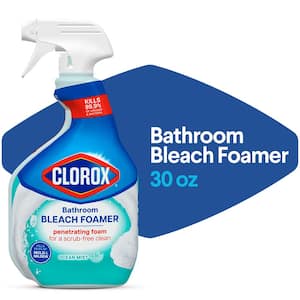
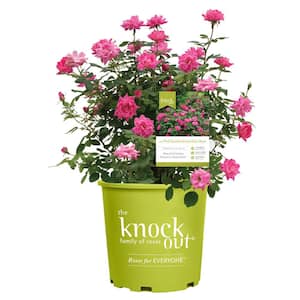
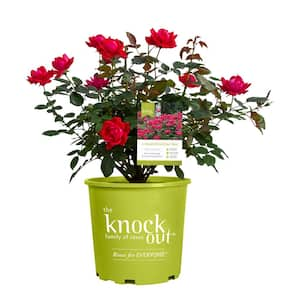
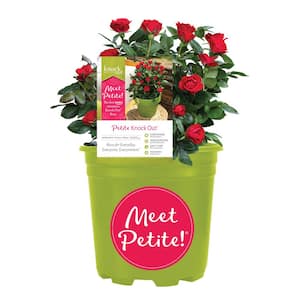
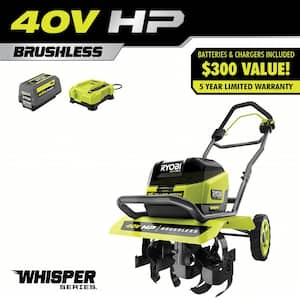
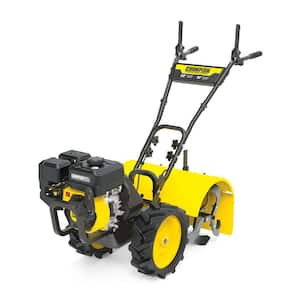
)
)
/17_514245_S_012_Product%20Image%20(square).jpg?im=Resize=(300,300))
;Resize=(300,300))
)
)
)
)
)
/2023_P2_Rain_Barrels_Product%20Image%20(square).jpg?im=Resize=(300,300))
)
;Resize=(300,300))
;Resize=(300,300))
;Resize=(300,300))
/12_SOIL_B_0420_Social%20media%20(square).jpg?im=Resize=(300,300))
;Resize=(300,300))
)
)
;Resize=(300,300))
;Resize=(300,300))
;Resize=(300,300))
;Resize=(300,300))
)
)
;Resize=(300,300))
;Resize=(300,300))
;Resize=(300,300))
;Resize=(300,300))
;Resize=(300,300))
)
/18Patio_Camden_Seagrass_5pcSeating_Planters_302468736_DTL3_L_Social%20media%20(square).jpg?im=Resize=(300,300))
;Resize=(300,300))
;Resize=(300,300))
;Resize=(300,300))
)
;Resize=(300,300))
;Resize=(300,300))
)
;Resize=(300,300))
)
.jpeg?im=Crop,rect=(363.69230769230774,1.2307692307692308,958.7692307692308,958.7692307692308);Resize=(300,300))
;Resize=(300,300))
)
;Resize=(300,300))
;Resize=(300,300))
)
;Resize=(300,300))
)
)
;Resize=(300,300))
;Resize=(300,300))
)
)
;Resize=(300,300))
)
;Resize=(300,300))
;Resize=(300,300))
)
)
;Resize=(300,300))
)
)
/Capello_Spring_Mum_10in_Social%20media%20(square).jpg?im=Resize=(300,300))
;Resize=(300,300))
)
)
;Resize=(300,300))
)
)
;Resize=(300,300))
)
)
;Resize=(300,300))
;Resize=(300,300))











































